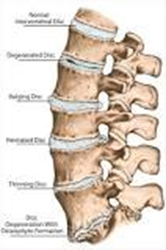A nurse is providing discharge instructions to a client who has epilepsy. Which of the following instructions should be included in the nurse's teaching?
(Select All that Apply.)
Refrain from climbing ladders.
Do not go swimming without a partner.
Refrain from driving unless seizure-free for 3 months.
Avoid using power tools.
Place client on the floor when having a seizure.
Place client on their back when they are recovering from a seizure.
Correct Answer : A,B,C,D,E,F
Choice A Reason:
Refraining from climbing ladders is appropriate. Climbing ladders involves a risk of falling, which can be particularly hazardous for individuals with epilepsy. Seizures can occur unexpectedly and may cause loss of muscle control or consciousness, increasing the risk of falls from heights such as ladders. Falling from a ladder during a seizure can result in serious injuries, including head trauma, fractures, or other injuries from impact. Advising the client to refrain from climbing ladders helps mitigate the risk of falls and associated injuries during a seizure episode, promoting their safety and well-being.
Choice B Reason:
Do not go swimming without a partner is inappropriate. Swimming alone can be dangerous for individuals with epilepsy as they may be at risk of drowning if they experience a seizure while in the water. Having a swimming partner can provide assistance and ensure safety in case of a seizure.
Choice C Reason:
Refraining from driving unless seizure-free for 3 months is appropriate. Driving restrictions are often recommended for individuals with epilepsy to minimize the risk of accidents caused by seizures. Many jurisdictions require individuals with epilepsy to be seizure-free for a certain period, typically around 3 to 6 months, before resuming driving.
Choice D Reason:
Avoiding using power tools is appropriate. Operating power tools or machinery can be hazardous if a seizure occurs, potentially leading to serious injuries. Therefore, individuals with epilepsy should avoid using power tools to reduce the risk of accidents during a seizure.
Choice E Reason:
Placing client on the floor when having a seizure is appropriate. Placing the client on the floor during a seizure helps prevent injury from falls. It is safer to have the individual lie down on a flat surface to reduce the risk of head injury or other trauma during the seizure.
Choice F Reason:
Placing client on their back when they are recovering from a seizure appropriate. Placing the client on their back after a seizure helps maintain an open airway and facilitates recovery. This position allows for proper breathing and circulation while monitoring the individual's condition.
Nursing Test Bank
Naxlex Comprehensive Predictor Exams
Related Questions
Correct Answer is ["A","D"]
Explanation
Choice A Reason:
Temperature 36.3°C (97.4°F) is correct. Hypothermia is a characteristic finding in neurogenic shock due to the loss of sympathetic control over temperature regulation and peripheral vasodilation. This can lead to heat loss from the skin surface and a decrease in core body temperature.
Choice B Reason:
Respirations 12/min is incorrect. Respiratory rate is usually not significantly affected in neurogenic shock. However, individuals with high cervical or upper thoracic spinal cord injuries may experience respiratory compromise due to paralysis of respiratory muscles, but this is not a typical feature of neurogenic shock.
Choice C Reason:
Incorrect: Neurogenic shock typically results inhypotension(low blood pressure) due to vasodilation. The given blood pressure reading is elevated, which is not consistent with neurogenic shock.
Choice D Reason:
Heart rate 54/min is correct. Bradycardia is a common finding in neurogenic shock due to unopposed parasympathetic activity resulting from the loss of sympathetic tone. The heart rate may be slow and may decrease further over time.
Choice E Reason:
Calcium level 7.0 mg/dL is incorrect, Calcium levels are not directly related to neurogenic shock. Neurogenic shock primarily involves the loss of sympathetic tone and the resulting hemodynamic changes, rather than alterations in calcium metabolism.
Correct Answer is ["B","C","D"]
Explanation
Choice A Reason:
Hyponatremia is incorrect. Hyponatremia refers to low sodium levels in the blood and is not typically associated with degenerative disc disease. This finding is unrelated to the pathophysiology of DDD.
Choice B Reason:
Paresthesia is correct. Yes, paresthesia, which refers to abnormal sensations such as tingling, numbness, or burning, can develop with degenerative disc disease. Nerve compression or irritation due to disc degeneration can lead to paresthesia in the affected area, typically radiating along the nerve pathway.
Choice B Reason:
Foot drop is correct. Yes, foot drop can develop with degenerative disc disease, especially if the condition leads to nerve compression or damage in the lumbar spine (lower back). Foot drop refers to difficulty lifting the front part of the foot due to weakness or paralysis of the muscles involved in dorsiflexion.
Choice D Reason:
Intermittent pain is correct. Yes, intermittent pain is a hallmark symptom of degenerative disc disease. Pain may vary in intensity and may worsen with certain movements or activities. Individuals with DDD may experience episodes of acute pain, as well as chronic, persistent discomfort.

Whether you are a student looking to ace your exams or a practicing nurse seeking to enhance your expertise , our nursing education contents will empower you with the confidence and competence to make a difference in the lives of patients and become a respected leader in the healthcare field.
Visit Naxlex, invest in your future and unlock endless possibilities with our unparalleled nursing education contents today
Report Wrong Answer on the Current Question
Do you disagree with the answer? If yes, what is your expected answer? Explain.
Kindly be descriptive with the issue you are facing.
